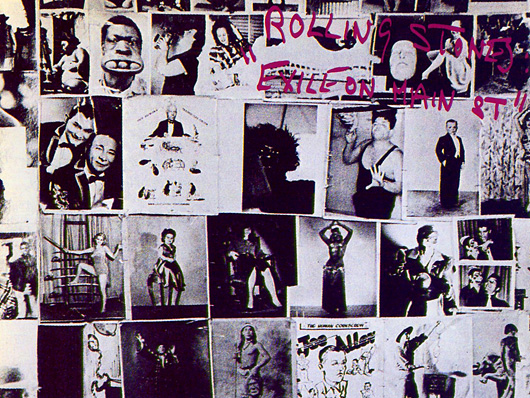
Exile On Main St reissue: intro
Welcome to MusicRadar's new Classic Album Of The Month feature.
Every month, we'll put an important release back in the spotlight, breaking the album down track-by-track and looking in depth at technique, gear and production. Think DVD-style commentary but for musicians!
To kick us off, a stone-cold classic from 1972 gets expanded and dusted down for 2010…
Although hard to comprehend now, upon its release in May 1972, Exile On Main St, The Rolling Stones’ grand, sprawling double LP, confounded most critics and fans.
A staggering, encyclopedic examination of American roots music - gospel, folk, country, soul, R&B, boogie-woogie rock ’n’ roll, it's all there - Exile marked the end of the Stones’ four-album hot streak, one which included Beggars Banquet, Let It Bleed and Sticky Fingers. (OK, we can call it five if you throw in the live album Get Yer Ya-Ya’s Out.)
The reason for all of the head-scratching was simple: During most of their early career, The Rolling Stones were known as the greatest ’singles’ band in the world. But as they came to equal The Beatles and embraced the album as a true art form, with Exile they reached their creative peak while pulling off the ultimate irony: They released a two-record set with nary a hit single to be found. (Tumbling Dice came the closest, peaking at number five in the UK and number seven in the US - this from a band that routinely racked up number ones.)
Produced by Jimmy Miller and recorded mostly in the basement of Keith Richards' rented French Riviera villa Nellcôte (the band were forced to flee England at the time to avoid paying enormous taxes, thus the ’Exile’ part of the title), with additional tracking and overdubs in Los Angeles, the album reflected, in sound and spirit, the ’elegantly wasted’ state of the group and the various friends, hangers-on and dope dealers that partied from dusk till dawn.
The decades have been kind to Exile On Main St. The voluminous, panoramic work that tested the patience of most listeners in 1972 is now regarded as one of rock’s unqualified masterpieces.
On 17 May 2010 (18 May in the US), Exile On Main St will be reissued in remastered form with a bonus CD featuring 10 previously unreleased tracks from that album’s sessions (some of which have been recently ’sweetened' by the Stones' current boardsman Don Was, with brand-new vocals, guitar overdubs and background singers).
MusicRadar gives you the track-by-track lowdown of this essential desert island disc(s). More importantly, we answer the question: Are 'polished' Stones better than their dirty and dusty originals? Read on...
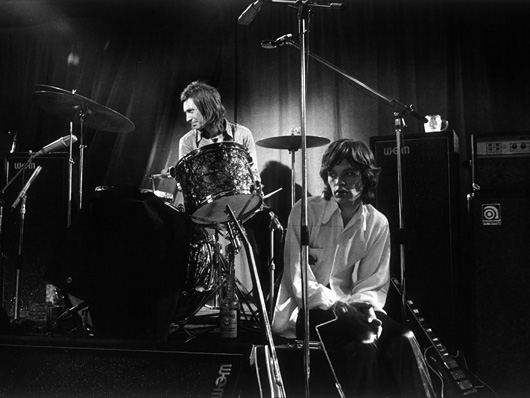
Rocks Off
A powder keg of an opener, heightened by the fact that it’s unlike any other song you can imagine, one that’s impossible to reference.
The structure, both shambolic and organic, with horns, back-and-forth clicky guitars (Richards employs his five-string open G tuning), piano and organ all duking it out, with the winner being Charlie Watts’ snare and cymbals - he wallops his crashes more here than in any other number in the Stones canon.
Jagger’s vocals are bi-polar, whipping around the fracas. On one track, he’s belting it out in a mid-rangy tenor, while on another he’s all raspy and creepshow-ish. A fascinating mixture.
The remaster cranks the overall volume but doesn’t affect the original’s balance. The breakdown is still a disorienting sea of reverb, with Billy Preston’s organ being the predominant instrument. And then the band kicks back in and drives the dense wall of sound home.
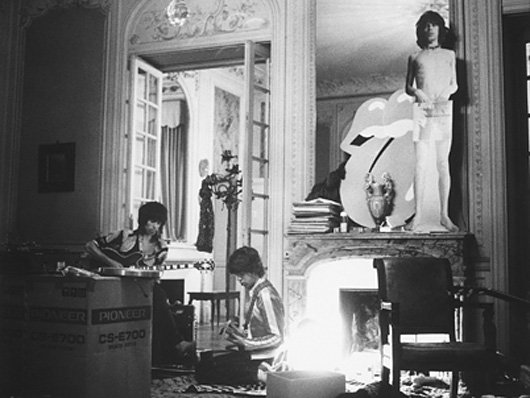
Rip This Joint
Musically, Rip This Joint is a 'wham bam thank you, ma'am' rave-up love letter to 1950’s American rock ‘n’ roll, while lyrically it’s a wry take on early '70s decadence. See all the chitter-chatter about Pat and Dick holding some shit in DC and the ‘butter queens’ in Texas - Jagger's firing it off so fast, it's a wonder he fits all the words in…
Although all the Stones pile on like gangbangers after the crack-crack of Watts’ drums, it’s Bill Plumber’s acoustic upright bass that really moves this party. In the 2010 version, you can literally feel the air being emitted from the instrument; it’s got a bounce and thump that an electric bass simply can’t replicate.
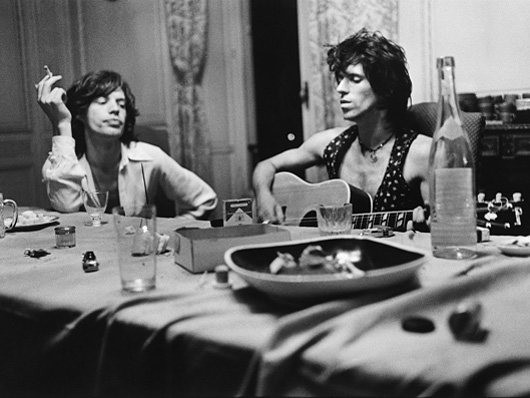
Shake Your Hips
Shake Your Hips is a mesmerising, inspired cover of Slim Harpo’s 1966 blues chestnut that features a riff ZZ Top would later use for the basis of La Grange.
A percolator, this one, steady as she goes, with Charlie Watts working the rims of his drums before focusing on his snare like he’s swatting at flies. On this reissue, the volume of his kit is practically doubled.
Jagger doesn’t so much sing as he sneers and yelps. Keith Richards turns in a twisty, sinewy solo, after which he and Mick Taylor engage in the now-classic Stones tradition of ‘guitar weaving.’ The two build in intensity until the all-too-soon fade-out.
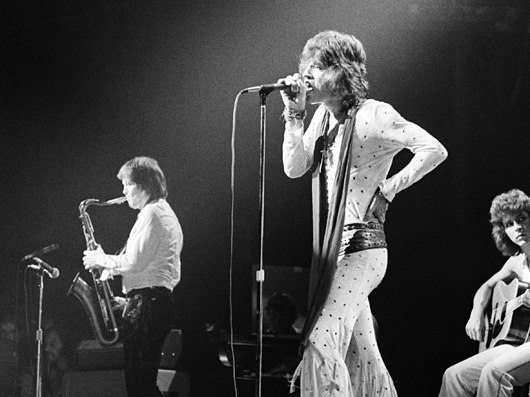
Casino Boogie
One of the last Exile songs to be written and tracked, Casino Boogie's lyrics were inspired by a scattershot approach William Burroughs employed in some of his writings, one which involved cutting words from books and newspapers and piecing them together - think a cross between outsider literature and a ransom note.
A fairly straight-forward blues rocker, Casino Boogie comes into full bloom with the vibrant sax solo by Bobby Keys and greasy guitar solos by Richards and Taylor (on slide). Keith also plays bass, and his tough yet playful walking patterns keep things hopping.
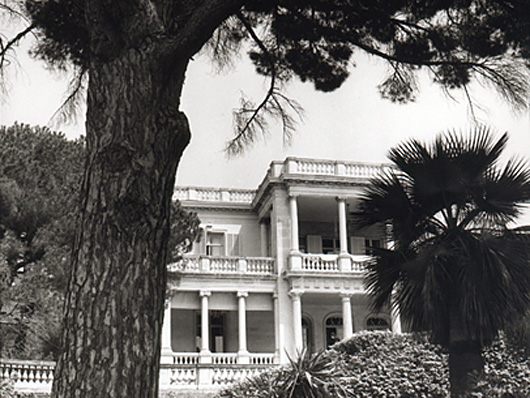
Tumbling Dice
That Tumbling Dice is a throw-down classic is without question. But the high-octane mastering of the Exile reissue robs this once dusty gem of some of its elegantly wasted appeal - sometimes you have to know when to leave a little dirt behind.
Mick Taylor’s bass is now almost non-existent until the three-quarters mark. The big winners here are the background singers, and that's not a positive for they practically overtake the track. We're all for the unsung stars having their day, but when they maul a masterpiece, it's time for a rethink.
We’ll take the original any day, thanks.
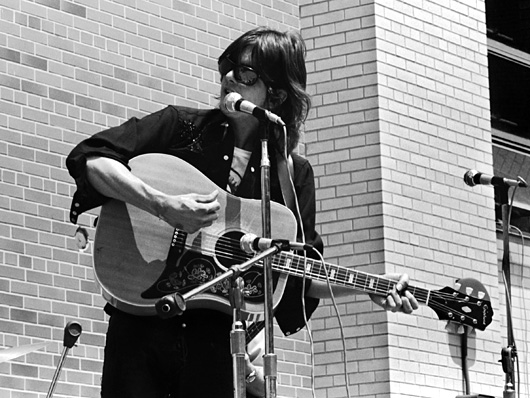
Sweet Virginia
On a stripped-down, pass-the-jug bit of acoustic country blues such as Sweet Virginia, Exile's 21st Century wash-up doesn’t seem so obtrusive… That is, until we hit the song’s second half, when the backing female vocals once again threaten to bum rush the show.
By the way, let’s clear up a rumour: Gram Parsons didn’t sing on this cut - that third male voice you hear (sitting comfortably beside Mick and Keef) belongs to Mick Taylor.
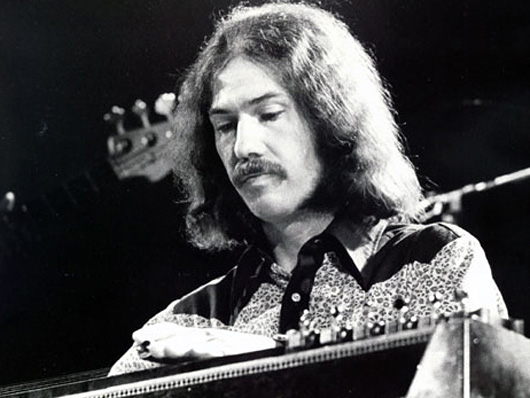
Torn And Frayed
Torn And Frayed is a dense, boozy, country-soul rocker, and that’s not even half the story, for it also brings to mind gospel and folk.
Something of a mélange, it bears the unmistakable influence of Gram Parsons. Parsons didn’t play on the cut, but his pedal-steel guitarist, Al Perkins, sure did. In this way, Parsons, present during this session, channeled his spirit - intentionally or not.
The new rendering doesn’t shift Torn And Frayed's sonic focus dramatically. It remains mostly faithful to the original, with only the volume noticeably goosed.
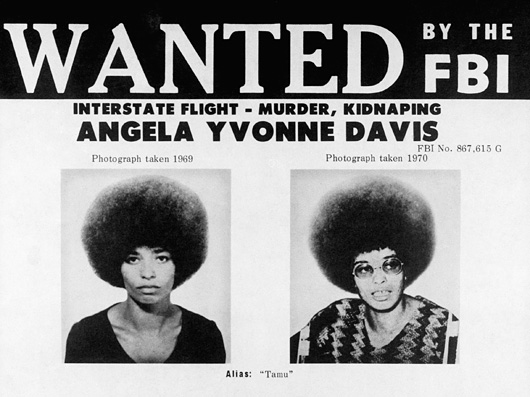
Sweet Black Angel
Written about then-imprisoned African American activist Angela Davis, who was up on murder charges at the time, Sweet Black Angel is one of the few overtly political songs Jagger and Richards ever wrote.
According to engineer Andy Johns, the percussion-laden track was cut with the players in a circle - the idea was to get the sound of the room (or, in this case, basement), with no separation between the musicians.
And it works like a charm. The ambience of the surroundings doubles as a kind of instrument, with Richard Didymus Washington’s marimbas leading us gently out into the night. Still as haunting now as it was back in the day.
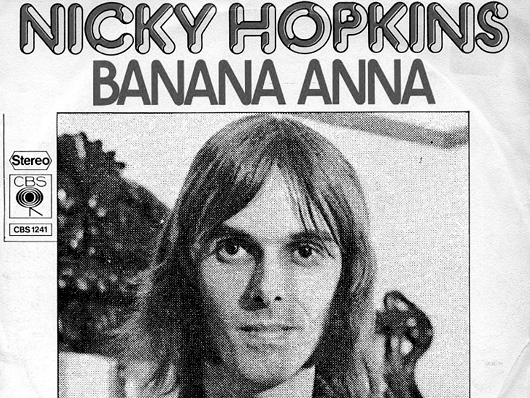
Loving Cup
Started but not finished during the Let It Bleed sessions of 1969, the Stones didn’t pick Loving Cup back up until they decamped for Los Angeles, having left Keith's cozy French villa.
To say that this is one Nicky Hopkins’ most memorable performances is an understatement. Indeed, he’s the star here, telegraphing the melody to Jagger and leading the way for Watts' forceful strokes. Whatever embellishments that have been made to the original are negligible - that is to say, it's wunderbar.
As for how Loving Cup has held up over the years as a song, check out The Stones performing the song with Jack White. This is one for the ages.
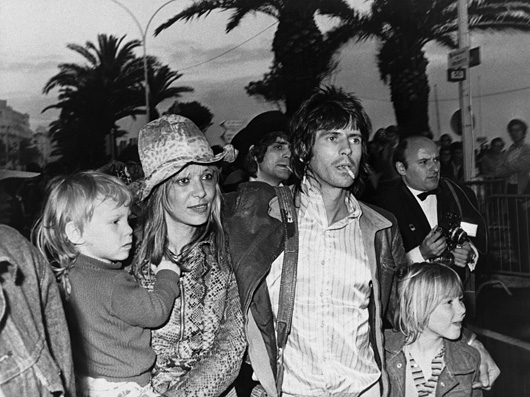
Happy
And so begins Side Three with Happy - one of Keef’s best-loved and, let's be honest, uncharacteristically carefree songs. The second single to be released from Exile, it reached number 22 on the US charts in July of 1972.
The remastered version doesn’t alter things to any discernible degree. Richards’ slide solo rings out loud and clear, and the horns of Bobby Keys and Jim Price provide ample punch. Oh, and check out producer Jimmy Miller on the drums - not shabby at all.
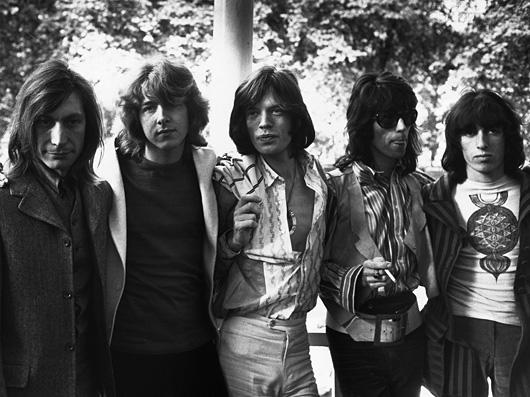
Turd On The Run
Despite the scatalogical title, the Mississippi Delta flows deep through Turd On The Run, a song propelled mightily by the upright bass of Bill Plummer.
Again, there aren’t any major sonic jingle-jangles here. It’s just a rip-snortin’, Keef-groovin', gun-totin’ track that makes you feel like you’re keeping watch in a shotgun shack.
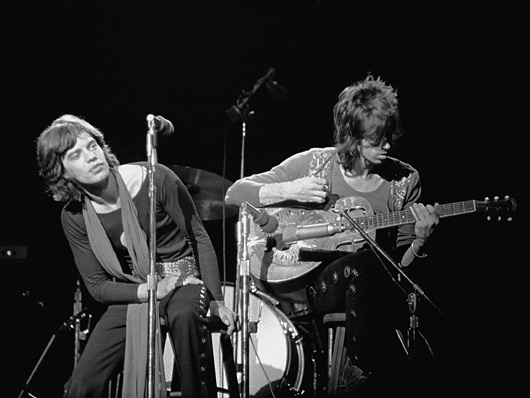
Ventilator Blues
Tough as a box of rusty nails, the grinding Ventilator Blues is perhaps Bobby Keys’ finest hour, for he literally wrote the rhythm parts and taught the Stones how to play them, clapping out the changes to Charlie Watts as he followed his timing.
Richards shines on slide guitar, snaking his notes around Nicky Hopkins’ sparkling piano. Their tracks seem brighter and shinier here than on the original recording, and unlike some of the other remastered tracks on this 'new' Exile, that's not a complaint.
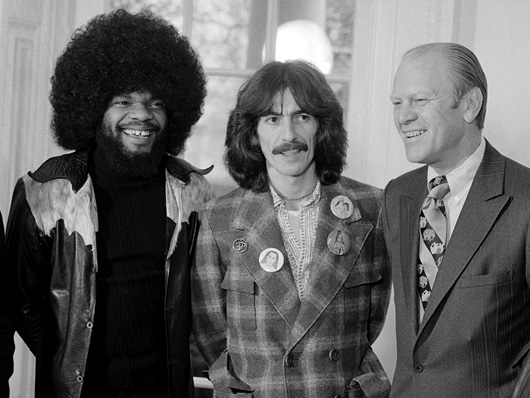
I Just Want To See His Face
It has been said that Billy Preston had a huge impact on Mick Jagger by taking the singer to church services in Los Angeles during the fall months of 1971. This mystical gospel number bears this out.
I Just Want To See His Face started out as a jam between Jagger, Mick Taylor and Charlie Watts until others (namely Bill Plummer and Jimmy Miller) joined in. Any new mods for 2010 have done little to diminish its reverby, spiritual force.
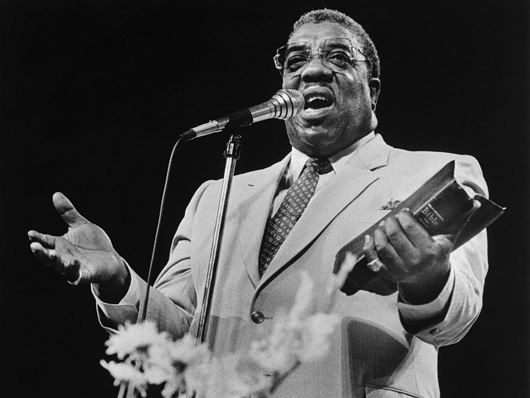
Let It Loose
Yet another gospel number, it is said that the Reverend James Cleveland greatly influenced Jagger during the period in which Let It Loose was written. And if there's any doubters in the house, give this tune a listen, for its religious origins run deep.
Richards and Taylor channel their guitars through Leslie speakers, and the effect is stupendous. But Let It Loose truly rises to the heavens when Bobby Keys and Jim Price blow their horns in ways that stun senses and tug at the heatstrings. Still a healer.
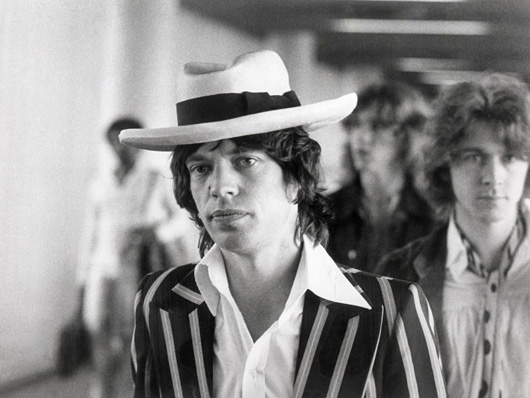
All Down The Line
A near constant on all Stones tours since the release of Exile, the good-time bopper All Down The Line features Mick Taylor’s righteous slide work and Bill Plummer’s bubbly basslines.
The remaster offers little in the way of instrumental audio surprises, other than the pronounced presence of the backrgound vocalists, who come 'this close' to the point of distraction.
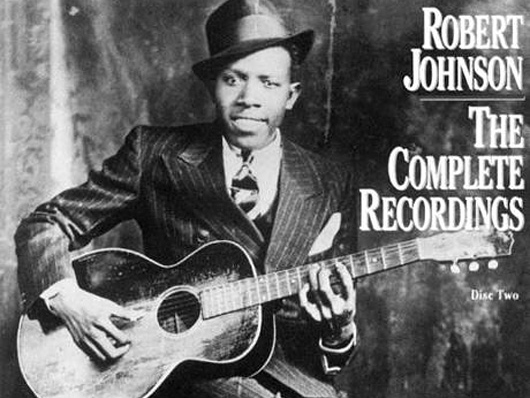
Stop Breaking Down
Robert Johnson used a slide for only the last four notes of his devastating original, but Mick Taylor employed metal on metal throughout this cover, as if by doing so he could divine some grand secrets from the ghost of the blues master.
As fine as Taylor's playing is, it wouldn't mean a damn if Charlie wasn’t good tonight. Here, all polished up for 2010, he’s very good indeed.
Maybe the real reason behind the track's quality is because Ian Stewart's finally back at the piano. On the whole of Exile, the Stones' unofficial sixth member only plays on three cuts: Shake Your Hips, Sweet Virginia and this number.
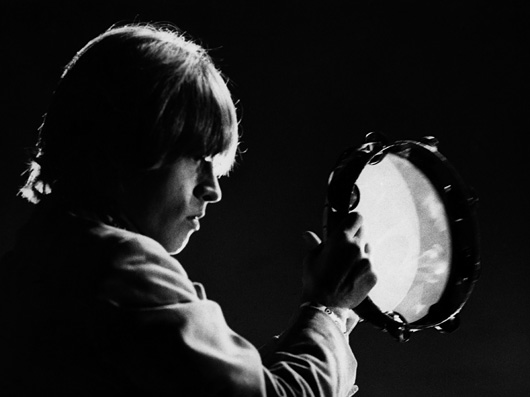
Shine A Light
Like Lennon and McCartney, Stones tracks were credited to the writing team of Jagger and Richards. Shine A Light, however, started out as a solo Jagger composition back in 1968 and dealt with guitarist Brian Jones and his ever-worsening drug addiction.
Various demos were recorded, but it wasn’t the band hit LA in 1971 and Jagger and Billy Preston started going to church together that the song became fully realised.
Later cut at Olympic Studios in London, it’s a rousing gospel number, with Preston contributing uplifting piano and organ. Producer Jimmy Miller once again filled in on drums for an absent Charlie Watts.
The 2010 version cranks up the overall dB levels, but aside from affecting the backrground vocals and percussion, little else is changed.
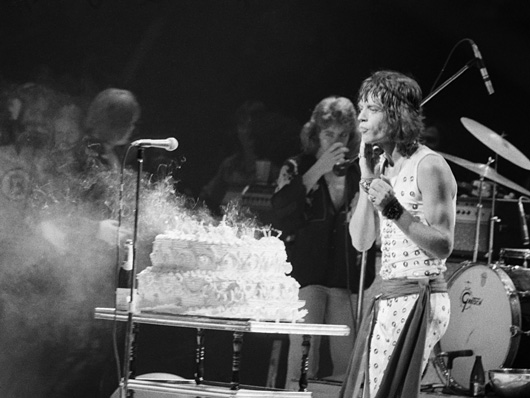
Soul Survivor
Very few album closers could double as openers, but Soul Survivor comes damn close. Following a tricky little Keith intro riff, the whole band kicks down the door and rocks the sure-shot.
Soul Survivor's middle is one grand chorus, with Mick Taylor’s slide guitar mysterious and ominous.
If there’s any major sonic differences from the original, the remaster is more sympathetic to Nicky Hopkins’ piano in the breakdown, which leads into an oh-so-glorious ride-out.
And after 18 classic tracks, one of the greatest Stones albums ends. Time to see what was left in the can…
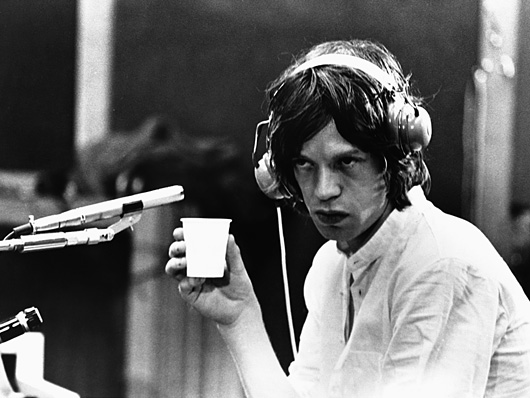
Pass The Wine (Sophia Loren)
With Disc One (or Side Four…) of the original Exile now history, it's time to hit Disc Two and embark on a hunt for buried Stones treasure.
Pass the WIne (Sophia Loren) is a funky, mid-tempo shuffle/jam, very much in the vein of War’s Spill The Wine or even Santana’s Oye Como Va, with jagged, flanged guitar lines swirling around Jagger‘s seemingly tossed-offed vocals, this track has been bootlegged extensively under the working title of Sophia Loren.
While it features some of Nicky Hopkins’ most intuitive playing - he jumps effortlessly from jazz to honky-tonk - the real revelation is a mid-song harmonica solo by Jagger, truly one of the world’s most underrated harp players. What he lacks in melody he makes up for in guts and a raw desire to connect.
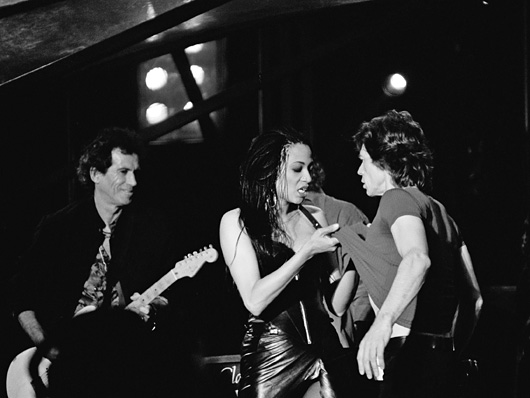
Plundered My Soul
For Plundered My Soul, new backing vocals by singers Lisa Fischer and Cindy Mizelle pile on the authentic soul but can't save this turgid, almost-but-not-quite grooving rocker.
Overall, it’s not exactly one of the Stones’ finest efforts (Don Was is listed as co-producer along with original boardsman Jimmy Miller), so its exclusion from the original set is understandable to say the least.
One saving grace? It’s always fun to hear Nicky Hopkins' ivories dance around Bobby Keys’ rock-steady sax.
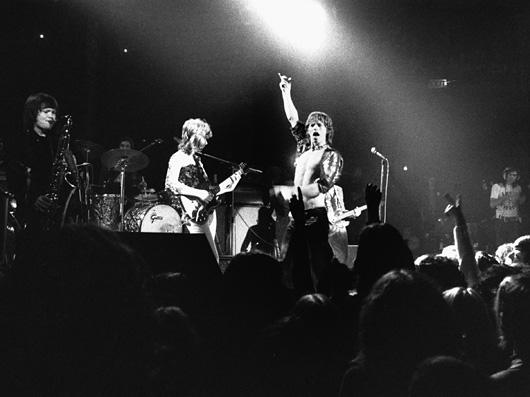
I'm Not Signifying
The tinkling of honky-tonk piano kicks off I'm Not Signifying's blues shuffle. Mick’s all ginned up, putting on his faux country manners. Soon, however, he’s fighting the snap of Watt’s ringing snare. What the hell is going on?
Actually, it’s this sort of delicious audio disarray that makes I'm Not Signifying such a trashy winner. It sounds live, cut in one take, the echo of the basement figuring prominently in the mix.
The mid-section features a baton toss of nasty slide guitar (hard to tell if it’s recent Richards or vintage Taylor) and distorted harmonica. Like a drunk walking the street, the tune wobbles, finds its legs, builds steam but ultimately ends in a messy splat. A jolt of New Orleans horns at the end appears to be an afterthought.

Following The River
A gospel ballad, driven mainly by melancholy piano and acoustic guitars. While one would never place Following The River alongside such slowburn triumphs as, say, Wild Horses, Angie or Memory Motel, it’s not too shabby.
That is until halfway through, when some particularly obtrusive harmonies and strings come far too close to strangling the entire song altogether.

Dancing In The Light
While Keith’s brittle, five-stringed Tele flavors the jump-up blues of Dancing In the Light, it's Charlie's more 'relaxed' playing that you'll remember this offcut for.
For the entire track, Watts is frisky as hell. In fact, as the song progresses, he's downright giddy, battering his cymbals so randomly you'd think he was A/B-ing crashes in a music store.
Perhaps this is a run-through. Who knows? Could’ve been the case.
Jagger snarls and froths about “twisting in the wind” and “hittin’ the ceiling”. What he’s on about is anyone’s guess but when he rhymes “sinking feeling” with “potato peeling”, it‘s clear that sense doesn‘t matter. Attitude trumps all…

So Divine (Alladin Story)
A weird title for a song that doesn’t really go anywhere. Bobby Keys turns in a bit of sinewy sax, but the real point of interest for So Divine (Alladin Story) is Richards’ main guitar riff, which is a half-speed yet otherwise damn-near-duplicate of Paint It, Black.
Coming from any other guitarist, such note-Xeroxing would be a case for the lawyers. But who’s going to tell Keef he can’t borrow from himself?
Hang on, didn't John Fogerty have a problem with that once?
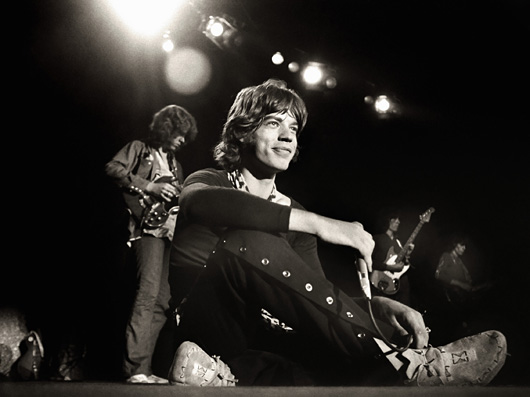
Loving Cup (Alternate Take)
There’s guitar weaving and then there’s this knotted-up mass of wrestling axes.
Alternate take or not, this 'new' version of Loving Cup is one of the few times listening to a Stones track when you’re tempted to say, “Guys, just figure out your parts already!”
Which, of course, they eventually did.

Soul Survivor (Alternate Take)
Now here’s a tasty little nugget. The band lays down the basic track for Soul Survivor while a sleepy Keith searches for a vocal melody.
His five-string pierces through the mix more than on the original album version. Devoid of background singers and most of the keyboards, this is a Richards song all the way.
Mix-wise, it’s pretty flat and the rousing climax doesn’t climax. Still, it’s neat to poke one’s head in the door and listen to what would ultimately become a total destroyer of a cut.

Good Time Women
The Stones were chasing this puppy around the block for a number of years. But don't let the song title fool you. Actually it won't, because it will take approximately 20 seconds for you to realise that Good Time Women is a double-speed, work-in-progress Tumbling Dice.
As such, it's more boogie-woogie than swagger-rock, so the feel is altogether different. Once you get used to the breakneck pace and the lack of soul singers, it’s a toss-up which is better: the 'demo' or the finished product.
Who cares - we got them both.
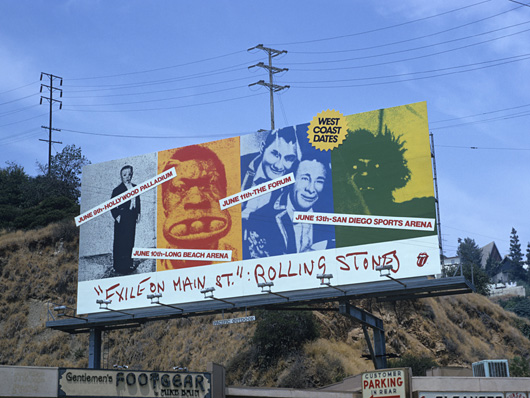
Take 5
An instrumental jam built around a Link Wray meets Steve Cropper distorted/flanged riff. Whether Take 5 was ever intended to be a full song is debatable, but for all of its one minute and 47 seconds, it’s a toe-tapper.
Here's an idea: make a loop out of it. At five times the length, it'd be perfect!

Exile On Main St reissue: verdict
As rock 'n' roll works of art go, Exile On Main St is right up there. This is an album one can get lost in for days and weeks even. To say that it stands alongside The Beatles' 'White Album' wouldn't be mere hyperbole, for both take on a new meanings with each listen.
While we have a few minor quibbles with the remastering of the original 18 tracks - Tumbling Dice, for example, sounds far too polite with its grit and muck washed away - the overall impact of the recording hasn't been lost. As was the case with a couple of The Beatles' remastered discs from last year, what we now have is a record that's been given a non-lethal shot of steroids. It's punchier, more in your face - and to some new listeners, this could possibly be considered a plus.
The bonus disc of previously unreleased cuts is a fine curio, but nothing on it is mind-blowing or essential. Even the alternate take of Soul Survivor - a fun listen once or twice - doesn't hold a candle to the original.
So, bottom line: Do you part with your money for the reissue, or do you really splurge for the Super Deluxe Edition which throws in two 30-gram vinyl albums of the set, a DVD of the making of Exile and a 50-page collector's book with photos?
Whichever way you want to go, you can't go wrong. Some albums mold and enrich you; they help inform your musical personality in ways both tangible and intangible. Exile On Main St does all of that and more.
As for the remastering, think of it this way: A dab or two of fresh paint is sometimes necessary to preserve The Last Supper's timeless qualities. It would take a hydrogen bomb to destroy it
Liked this? Now check out 28 Telecaster legends
Buy The Rolling Stones' Exile On Main St reissue here: Amazon, iTunes, HMV
Connect with MusicRadar: via Twitter, Facebook and YouTube
Get MusicRadar straight to your inbox: Sign up for the free weekly newsletter

Joe is a freelance journalist who has, over the past few decades, interviewed hundreds of guitarists for Guitar World, Guitar Player, MusicRadar and Classic Rock. He is also a former editor of Guitar World, contributing writer for Guitar Aficionado and VP of A&R for Island Records. He’s an enthusiastic guitarist, but he’s nowhere near the likes of the people he interviews. Surprisingly, his skills are more suited to the drums. If you need a drummer for your Beatles tribute band, look him up.









